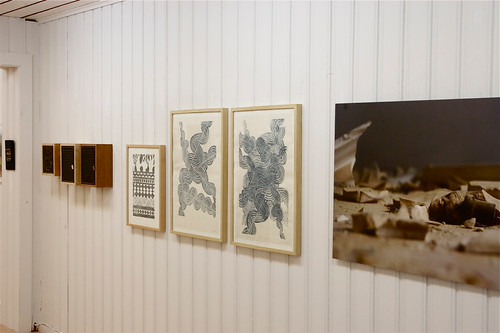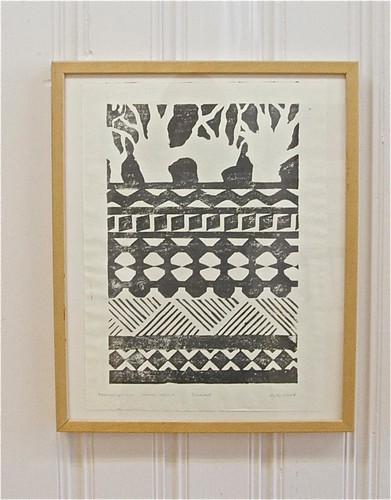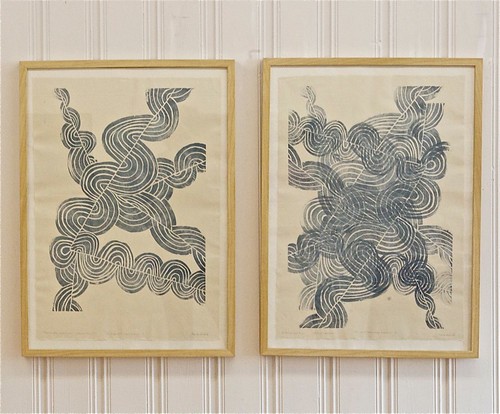"...But one of Nash’s most impressive and widely hailed works can never be moved anywhere. Further down the Vale of Ffestiniog, where he stayed with his grandfather as a child, are four acres of prime Welsh woodland surrounded by grand, dome-like hills. Having inherited this terrain, Nash decided to plant 22 ash trees there in the late-1970s. He chose ash because it is a very resilient tree, forever contorting itself in order to seek the light. And over the decades, with the help of careful pruning, and splashing of faux fox’s urine to keep the bark-stripping squirrels away, Nash has made Ash Dome grow into an impressive natural sculpture that echoes the forms of the encircling hills.
Nash loves working with wood. ‘There’s a profound wisdom there, stretching over millennia,’ he tells me. ‘I take my cue from what the material suggests to me. And this exhibition will reveal 40 years of my research. I am a researcher into the science and anthropology of trees and the wood they produce. For every culture and civilisation, wood is a fundamental survival material for building, defending, cooking and so much more. I’m also a maker of objects that are motivated by an idea, an attitude of a healthy relationship with our outer skin, the environment." (excerpt from interview found
here)
see film
here










































